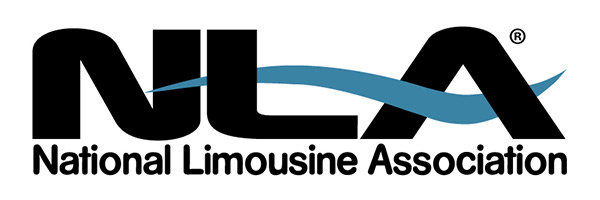- Details
- Category: Industry News

The Global Business Travel Association (GBTA) recently announced the Ready. Safe. Travel. Training Program to unite, educate, and engage all levels of the business travel industry. This virtual training program will span over four weeks in May, with sessions being held virtually each Wednesday (May 5, 12, 19, 26) for three hours. Each weekly session will focus on a different component of returning to business travel: being ready to hit the road again; safe ways to restart travel; and continuing to keep travelers informed and comfortable when travel begins again. There is a global as well as regionally specific component to the series.
By completing the training program, participants will receive designation as a Ready. Safe. Travel. Specialist, demonstrating their commitment and knowledge of post-pandemic advancements of business travel. Participants can also earn Global Travel Professional (GTP) credits for attending.
 GBTA Executive Director Suzanne Neufang
GBTA Executive Director Suzanne Neufang
“GBTA created this curriculum exclusively for our buyer and supplier members to help them transition business travel and its practices beyond the pandemic,” said GBTA CEO Suzanne Neufang. “With a focus on risk and duty of care principles, emerging travel tools, and supplier advancements, participants of the program will come away armed with all the essentials for a safe return to business travel.”
This training program is the latest phase of GBTA’s Ready. Safe. Travel. Campaign, launched last fall with the objective of bringing awareness to the importance of the business travel industry to the global economy, advocating for a timely and safe return to business travel, and to provide Association members with the education and tools to do so.
Early bird registration ends March 31. For more information or to register for the Ready. Safe. Travel. Training Program before the price increases, click here.
Visit gbta.org for more information about GBTA.
[03.26.21]
- Details
- Category: Industry News
 Retiring VP of Coach Sales Jack Forbes
Retiring VP of Coach Sales Jack Forbes
Prevost announced that Jack Forbes has retired from the company, effective March 5, after more than 40 years in the motorcoach industry.
Forbes started his career in the industry in 1980 and joined the Prevost team in 1998 as vice president of part sales, where he grew the Prevost parts business. In 2012, he took on the daunting task of a dual role as vice president of parts sales and corporate accounts.
“I continued working to grow the parts side while also developing our plan to move into the public sector commuter business,” Forbes said. In 2016, Forbes moved to coach sales where he was responsible for seated coach and public sector as vice president of new coach sales.

In the last year, Forbes shifted his focus to key corporate accounts, during which time he also began the process of passing the torch to Prevost newcomer Brad Wiese. “I mentored Brad, our new sales vice president, during the past year in preparation for my retirement,” Forbes said. “He is up to speed and ready for the tasks at hand.”
Prevost thanks Forbes for his dedication and many contributions over the years. “We are grateful for the hard work, accomplishments and upbeat attitude Jack brought to Prevost,” said Francois Tremblay, Prevost general manager. “He leaves big shoes to fill, and we wish him the absolute best in his retirement.”
Forbes is well known for his positive, can-do attitude and hard-working mentality. “I am extremely proud of the long-term relationships I’ve built with customers and bus industry associates over the years,” said Forbes. “Many go back almost 40 years and were much more than just business; they are friendships.”
He continued: “I am proud of the reputation I have built as a resource that gets the job done, is always transparent, and likes to have fun when the time is right!” Forbes has never missed a UMA EXPO, and this year is no different. He looks forward to fun with friends and associates next month at the event in Orlando before he takes on life as a retiree.
For more information about Prevost, visit prevostcar.com.
[03.26.21]
- Details
- Category: Industry News

You’ve probably heard the idea of a “health passport” being bandied about in the past few months, even before the vaccine was widely available. It’s been known by many different names—digital health passport, vaccine passport, travel pass, wellness passport, immunity passport—but the concept remains the same regardless of the moniker: to allow people to travel again with quarantine and widespread testing, and to restart the global economy. The World Health Organization (WHO) said it was “exploring how the common vaccination record could be done electronically” back in December 2020 (which was a turnabout of its previous opinion of the idea). It’s been proposed by many in the travel industry, including associations, but right now it’s getting a big push by U.S. airlines—all of which have been hit particularly hard during the yearlong pandemic.
If you’ve been vaccinated, you received a card from the Centers for Disease Control and Prevention noting the date of your shot(s). The hope is that this information can be exchanged electronically so that one can travel across borders safely and without the added bureaucracy.

Airlines for America, an organization representing the major U.S. carriers, recently sent a letter to the White House’s COVID-19 Response Team Coordinator Jeffrey Zients to establish a framework by May 1 that would allow vaccinated people to travel freely starting this summer—while keeping safety and its protocols a priority. The letter was co-signed by several of our industry’s organizations, including the NLA, U.S. Travel Association, and Global Business Travel Association.

Late last year, the International Air Transport Association (IATA) announced that it was developing its Travel Pass app, and earlier this month, in partnership with Singapore Airlines, the association said that it had successfully completed a trip for passengers traveling between Singapore and London.
But the digital or physical documentation isn’t necessarily being limited to international travel; its application for hyperlocal tourism is definitely being discussed and implemented. According to Meetings and Conventions, “Passports could also open the door to everyday pursuits that seemed normal before the pandemic. In Israel, the country with the fastest vaccination rate, citizens with a vaccination ‘green pass’ will be allowed entry to gyms, hotels, concerts, and indoor dining at restaurants.” That’s already the case in the state of New York, which is still testing its Excelsior Pass to admit vaccinated people to games and concerts at Madison Square Garden.

Further, some employers are also considering requiring this information as a way to return to the office, or for wide-scale meetings to return. Royal Caribbean announced that it was starting cruises to the Bahamas and Mexico for those who can prove they have been fully vaccinated.
The concept is not without its opponents. According to a February 2021 poll conducted by J.D. Power and Associates about resuming travel, 33 percent of respondents said that digital vaccine passports were a good idea and should be required. The same percentage (32 percent) said it was good but should be optional. A full 35 percent said that it was a bad idea altogether, noting that it should be optional or not introduced at all.
A recent GBTA poll (March 2021) also found that 66 percent of respondents believe implementing Digital Health Verification is a good policy, the majority of whom believe it will help employees safely resume business travel. The same poll found that respondents from Europe are more likely (72 percent) than their North American counterparts (63 percent) to say it’s a good policy. For those who think it’s a bad policy, 73 percent cited privacy concerns as their top issue against it.

Privacy concerns and limitations to technology (especially regarding poorer Americans who may not have a smartphone, or those who aren’t comfortable with technology) have also been cited as an impediment to health passports in other polls. Sharing personal health information with the government isn’t exactly something that many Americans are jumping on board to do. Also, as the vaccine rollout has been uneven across the globe, it becomes an issue of access and priority, potentially marginalizing those who haven’t been able to get the vaccine against those with the privilege to move about freely while we reach the level of “herd immunity.” There’s also the issue of those who don’t want to—or can’t—receive the vaccine, even though the health passport is widely expected to drum up acceptance of it.
No matter where you stand on the health passport, it’s certainly going to continue to be a hot-button issue in the coming weeks and months as the recovery gets underway.
[03.23.21]

